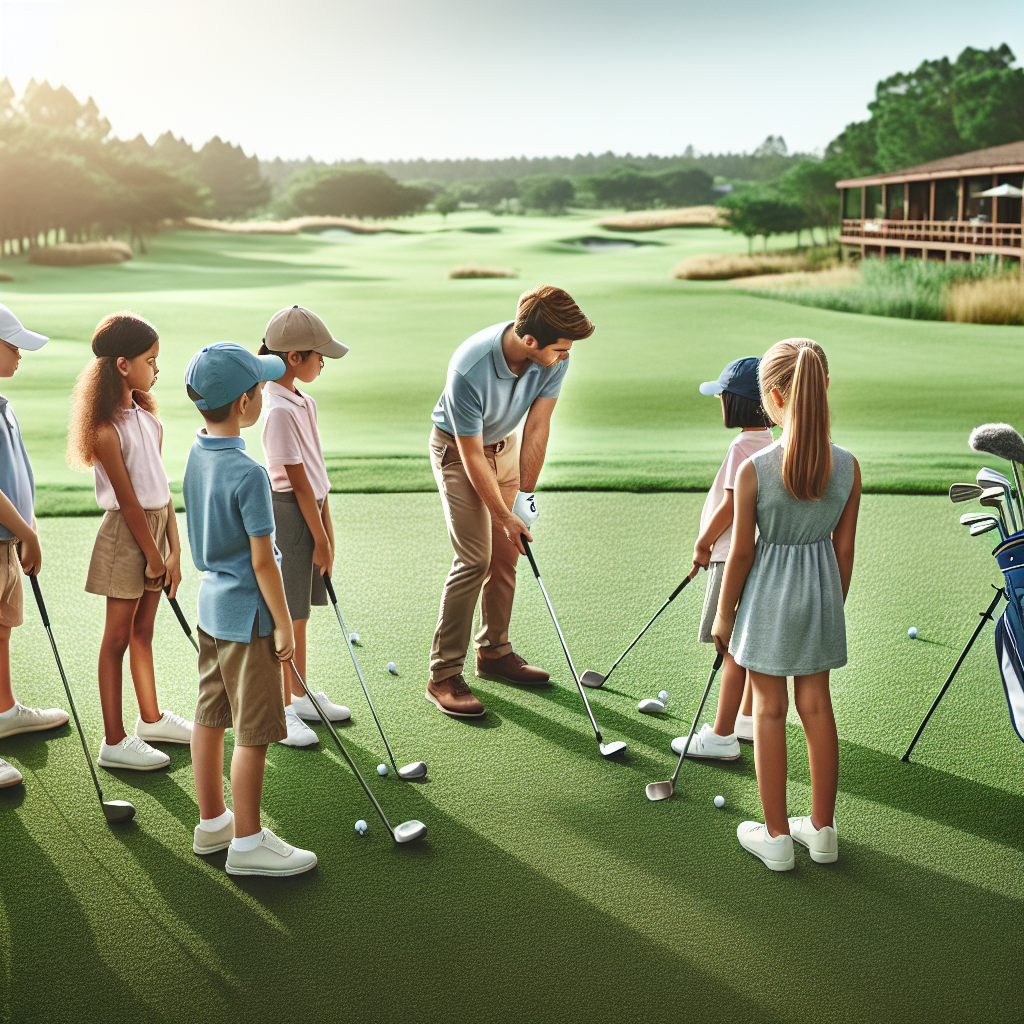Childrens Golf Lessons

Childrens Golf Lessons
Golf is a fantastic sport for children, offering not just a way to enjoy the outdoors but also a chance to develop important skills. Childrens golf lessons provide a structured approach to learning the game while promoting physical and mental growth. In this article, we’ll delve into the many benefits of these lessons, what you can expect, how to choose the right program, and more.
Benefits of Childrens Golf Lessons
Physical Development
Participating in childrens golf lessons helps improve a child’s physical abilities. Here are some ways golf contributes to physical development:
- Coordination: Golf requires hand-eye coordination, which can enhance a child’s overall motor skills.
- Strength: Swinging a golf club builds upper body strength and flexibility.
- Endurance: Walking the golf course promotes cardiovascular health.
Mental Benefits
Golf is not just a physical game; it also sharpens the mind. Benefits include:
- Focus: Golf requires concentration and strategic thinking, which can improve attention spans.
- Confidence: Mastering new skills boosts self-esteem and encourages children to take on challenges.
- Patience: Learning to play golf teaches kids the value of patience and persistence.
What to Expect in Childrens Golf Lessons
Lesson Structure
Childrens golf lessons typically follow a structured format, which includes:
- Warm-up: Stretching and light exercises to prepare for practice.
- Skill Drills: Focus on specific skills such as driving, chipping, or putting.
- Play: Time spent on the course applying learned skills in real-game scenarios.
- Cool Down: Reflection on what was learned and areas for improvement.
Skill Progression
As children advance through golf lessons, they will experience a clear skill progression:
- Beginners: Learn grip, stance, and basic swing mechanics.
- Intermediate: Focus on refining techniques and improving accuracy.
- Advanced: Work on course management and strategy.
Choosing the Right Program for Childrens Golf Lessons
Age Appropriateness
When selecting a program, consider the age of your child. Many clubs offer tailored programs for different age groups:
- Ages 5-7: Fun-based learning with a focus on basic skills.
- Ages 8-12: More structured lessons that introduce competitive play.
- Ages 13 and up: Advanced techniques and preparation for tournaments.
Skill Levels
Ensure the program matches your child’s skill level. Programs should accommodate:
- Beginners: Introductory lessons focusing on fundamental skills.
- Intermediate Players: Lessons designed to build on existing knowledge.
- Advanced Players: Coaching that prepares for competitive play.
Popular Techniques in Childrens Golf Lessons
Swing Fundamentals
Teaching the basics of the golf swing is crucial. Key elements include:
- Grip: How to hold the club properly.
- Stance: The importance of a balanced position.
- Follow-through: Encouraging a complete swing motion.
Putting Techniques
Putting is often considered the most critical part of the game. Lessons will cover:
- Alignment: How to line up putts accurately.
- Distance Control: Understanding how hard to hit the ball.
- Reading Greens: Learning to assess slopes and breaks.
Finding Qualified Instructors for Childrens Golf Lessons
Certifications and Experience
When searching for a golf instructor, consider their qualifications:
- Certifications: Look for instructors with PGA or LPGA certifications.
- Experience: Instructors should have a background in teaching children.
Teaching Philosophy
An instructor’s teaching philosophy can significantly impact your child’s experience:
- Positive Reinforcement: Choose instructors who encourage rather than criticize.
- Fun Approach: Look for programs that incorporate games and fun activities to keep kids engaged.
Common Misconceptions About Childrens Golf Lessons
Age Restrictions
Many parents believe that children must be older to start playing golf. In reality:
- Start Young: Children as young as five can begin learning the basics.
- Flexible Programs: Many clubs offer programs specifically designed for younger players.
Equipment Needs
Some parents worry about the cost of golf equipment. However, here are some points to consider:
- Starter Sets: Many clubs provide rental clubs or starter sets for beginners.
- Affordable Options: Used equipment can be a cost-effective way to get started.
How to Support Your Child’s Learning in Golf Lessons
Practice Tips
Encouraging practice at home can reinforce what your child learns in lessons:
- Regular Short Sessions: Consistency is key; practice in short, focused bursts.
- Fun Activities: Incorporate games that mimic golf skills but in a playful context.
Encouragement Strategies
Support your child’s journey through positive reinforcement:
- Celebrate Achievements: Acknowledge milestones, no matter how small.
- Be Involved: Attend lessons and practice sessions to show your support.
FAQs
- What age should my child start childrens golf lessons?
– Children can start golf lessons as early as five years old, depending on the program.
- How long do childrens golf lessons typically last?
– Lessons usually last between 30 minutes to an hour, depending on the age group.
- What equipment does my child need for golf lessons?
– Basic equipment includes a set of clubs suitable for their height and comfortable golf shoes; many programs provide equipment.
- Are group lessons better than private lessons for children?
– Group lessons can be beneficial for social interaction, while private lessons offer personalized attention.
- How can I find qualified instructors for childrens golf lessons?
– Look for instructors with certifications from recognized golf organizations and experience in teaching children.
- What are the benefits of childrens golf lessons?
– Benefits include physical development, improved mental focus, and increased confidence, among others.
By investing in childrens golf lessons, you’re not only teaching your child a new sport but also providing them with valuable life skills. These lessons can open doors to lifelong friendships and enjoyable outdoor experiences. Start exploring programs today!
“`